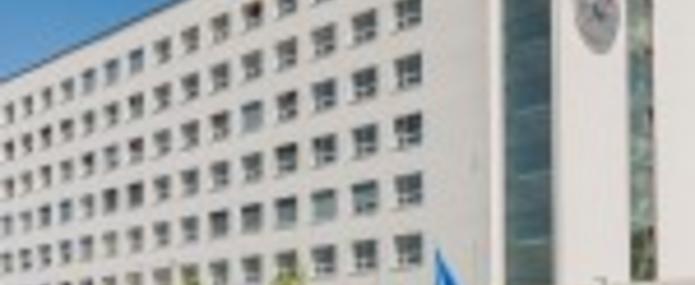Bonn’s sleepy-town atmosphere seems to be rubbing off on this year’s UN Climate Change Conference. At the opening ceremony on Monday, the president of the UNFCCC (United Nations Framework Convention on Climate Change) called for negotiators to emerge at the end of this critical mid-year negotiation round with a shorter, clearer, transparent and more workable negotiation text from which to produce a successful outcome at COP21 this December. We are now well into the first week of the negotiations, and countries still have a long way to go to reach such a goal by next Thursday.
This does not mean things have not gone well so far. The mood of the first few days, which negotiators spent working on consolidating options within the 12 sections of the negotiating text produced at the end of the previous round of UN talks earlier this year in Geneva, was collegiate. While this resulted in the shaving off only several pages from the 90-page document, it was an essential—albeit perhaps too slow—step to building wide-spread trust and buy-in from countries into the process.
At the stock-taking session Thursday morning, the co-chairs of the negotiating process noted Parties’ satisfaction with the mode of work, while also acknowledging delegates’ concern of the slow pace of progress. They thus suggested moving on to a new mode of work with 5 tasks: continuing to streamline the text and consolidating paragraphs, unpacking and regrouping paragraphs within sections, making options within paragraphs clear, clarifying concepts, and identifying potential paragraphs to be included in a draft decisions (to be annexed to the text of the Paris Agreement). Parties acquiesced with this way to create a ‘second reading’ of the negotiating text.
On Thursday and Friday, negotiators discussed what type of step to move forward with first. Some groups continuing streamlining parts of the text. There were also several discussions among various sessions on restructuring the text for clarity by clustering paragraphs together across themes. Yet progress here was very unequal. Some facilitating sessions, such as the one on technology, moved ahead with this exercise, while in the session on ‘timeframes’ of the new agreement some Parties were very reluctant to give the co-facilitators a mandate to produce guidance on how to use the various proposals for thematic clustering advanced by other Parties.
Various sessions also saw conceptual conversations, which many Parties deemed to be very useful. The conversation was particularly fruitful in the Friday evening session on ‘transparency of action’, in other words, the system that will collect, assess, and disseminate information on countries’ progress toward achieving their climate change commitments they submit this year. Here countries had a frank and lively discussion on differentiation. How to differentiate among countries is an issue that pervades the different areas of the climate negotiations (not just transparency but also mitigation and finance, to name a few), and is widely seen as being the most difficult to resolve up to Paris.
Parties advanced their view of the important elements in this section, and while some differences in views remained, they unanimously praised the open discussion taking place and noted the promising convergences of a central core of views. In an informal conversation, a lead negotiator seconded this discussion had been quite exciting, as he saw much need to create spaces for countries to have open exchanges on their views on difficult issues, well in advance of Paris. He also noted, however, that it was difficult to know how the conversation might then evolve once countries truly turn to formal negotiations and advance their more rigid negotiating positions.
And indeed, countries have so far not entered such substantial negotiations, but are still ‘negotiating how to negotiate’. In other words, they are discussing how to proceed forward on addressing proposals for how to reorganize sections of the Geneva text, with the aim of having a clearer text on which to base substantive negotiations on.
Now that the half-way mark of the conference has been met, the co-chairs and facilitators of the sessions must work with Parties to find a better balancing act between confidence building and efficiency. Parties must pull forward and find ways to significantly accelerate their work. On this depends whether they reach the goal of producing by next Thursday a shorter, more transparent, and more workable text, which is essential to keep us on a good road to Paris.


